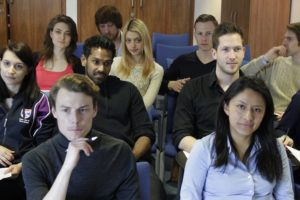 Friday 9 February 2024
Friday 9 February 2024
11am – 1.30pm
Lecture Room 2, The Gateway
Presenter:
- Professor Shuang Ren, Queen’s University, Belfast.
This joint event with the the University of St Andrews Business School Department of Management’s Work, Organisations and Society thematic research group will include two talks and lunch.
11am to 12noon
Professor Ren will share tips on publishing in high-ranking journals and what it is like being an editor, based on her extensive editorial experience for BJM, JOOP, and other journals.
Q&A warmly welcomed: bring your burning questions on academic publishing along!
12pm to 12.30pm
Lunch.
12.30pm to 1.30pm
Research talk: The Influence of competitive action intensity on team performance via leader bottom-line mentality? a social information processing perspective
All welcome.
Lunch will be served. Please email [email protected] to register your attendance for catering purposes and note any dietary requirements you may have.
Photo by Kaitlyn Baker on Unsplash

 Thursday 16 November 2023
Thursday 16 November 2023 Wednesday 9 June 2021
Wednesday 9 June 2021 Wednesday 26 May 2021
Wednesday 26 May 2021 Panel members:
Panel members: Professor Paul Weller,
Professor Paul Weller, Professor
Professor